(CANCELLED) CRRS Working Group Spring Colloquium Part II: Keynote Lecture
When and Where
Speakers
Description
Please note that Professor Kim Hall, in consultation with the CRRS conference organizers, has cancelled the planned keynote lecture.
The CRRS-sponsored working group on Whiteness in the Early-Modern World will be hosting a two-part colloquium this spring. Part I will take place on Friday, April 23, and feature a series of roundtables in which workshop participants will each spend 5-7 minutes sharing their work in progress and drawing connections to readings from its 2020-2021 workshop series. Part II will take place on Friday, May 7, and feature a keynote lecture by Kim F. Hall (Barnard College), whose book, Things of Darkness: Economies of Race and Gender in Early Modern England, was—and remains—foundational to CRRS' discussions.
About the Working Group
While the study of blackness and indigeneity in the early modern world has been well established within diverse disciplines, the study of whiteness is a comparatively recent phenomenon. The 2020-2021 CRRS Working Group addresses the following questions (among others): How was whiteness defined, constructed, and depicted in the early modern world? What did it mean in terms of ideas about labor, class, nation, gender, and beauty? How were its boundaries delineated, and against whom was it held in opposition?
In attending to whiteness as a category of analysis, we seek to complicate our understanding of race in the early modern context by moving beyond those framings that primarily racialize black and indigenous subjects without considering the ways in which whiteness was constructed and necessarily operated as a racial category across time and space. We also explore the disciplinary and methodological frameworks we apply to our enquiry into the early modern world.
Part II: Keynote Lecture
“Can You Be White and Hear This? The Racial Art of Listening in American Moor and Desdemona“
Kim F. Hall, Lucyle Hook Professor of English, Professor of Africana Studies, Barnard College, Columbia University
Register via the CRRS Zoom weblink or use the register button at the top of this page.
This talk examines the ways that Keith Hamilton Cobb's American Moor and Toni Morrison and Rokia Traoré’s Desdemona address the whiteness of the various “industries” that discipline black responses to Shakespeare. Their appropriations of Shakespeare’s Othello speak over what W.E.B. Du Bois called the color line by performing conversations that highlight the missed readings and over-readings in the play. Drawing on Jennifer Lynn Stoever’s The Sonic Color Line, I suggest that Morrison, Traoré, and Cobb are “theorists of listening” and of whiteness. Their plays demonstrate how Black speech and articulated Black experience are continually conditioned for white consumption.
American Moor stages the ways the Black actor’s verbal and emotional exuberance is channeled and shaped by white interlocutors. Desdemona, by resituating Desdemona in the afterlife, is able to work around whiteness’ refusal to hear and create a listening space. Both pieces hold out hope for generative conversations across racial and historical divides, but make clear that true change will take place only with both Black decolonization and white unlearning.
Keynote Sepaker Professor Kim F. Hall is the Lucyle Hook Chair of English and a Professor of Africana Studies at Barnard College where she teaches courses in Early Modern/ Renaissance Literature, Black Feminist Studies, Critical Race Theory and Food Studies. She is the author of Things of Darkness: Economies of Race and Gender in Early Modern England, Othello: Texts and Contexts and The Sweet Taste of Empire: Sugar, Gender and Material Culture in Seventeenth Century England (under contract with UPenn Press).


